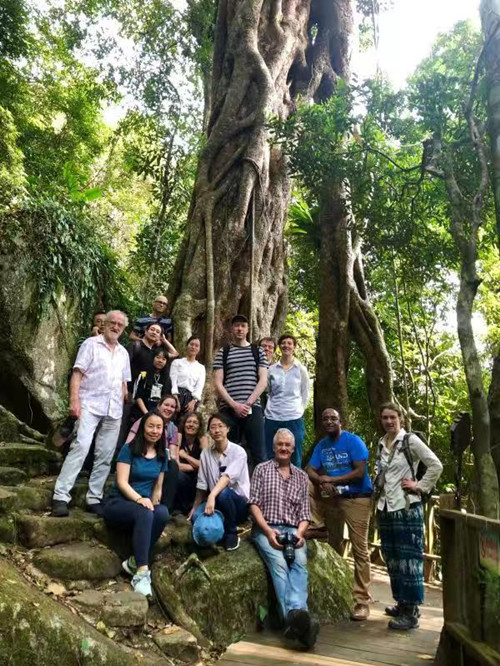

Franca Bongers
Moving from the Netherlands to China was an exciting time. Although I have experience in traveling and living abroad, it is always exciting to move to a new place, a new culture and make new friends. Living in China is very different from living in the Netherlands, not only because of the size of the country but also because of the culture, which makes living in China so exciting. Walking the Great Wall and visiting ancient cultural heritages like the Forbidden City and the Temple of Heaven is wonderful. But the hospitality of the people and the culture of always sharing a meal is something I cherish. I am very happy I moved to China and that I am able to continue my stay with the PIFI scholarship. There are still so many different places to see, foods to eat, and characters to learn.
I contacted Prof. Keping Ma for a post-doc position because of his outstanding science and his international collaboration. Thereafter I had the privilege to land in an international-minded group that accepted me and helped me out in many different ways. I am so lucky that my colleagues became my friends and I can keep working with them for two more years. In addition to the international consortium in which I started working (BEF-China), different professors from all around the world come and visit the IBCAS. International collaboration is something I love in my job as a scientist; people from different cultures and backgrounds make work interesting and this kind of diversity is good for creativity and development within science. Therefore, I am thankful for the opportunity to work together with Prof. Ma and Dr Liu; being part of BEF-China and such a high standing international collaboration is a privilege.

Sino-German collaboration group meeting, visiting Jianfengling National Nature Reserve, Hainan [Image: IBCAS]
Within BEF-China I work on the role of functional traits on tree growth, which is exciting in itself. And recent developments in statistical analyses to determine functional diversity within communities enable even more in-depth understanding of forest ecology. In addition, I also get the chance to learn about plant-insect interactions and the role of soil-microbial communities, creating a whole-ecosystem perspective. But not only in the BEF-China consortium, but also from colleagues of the Biodiversity and Biosafety group of Prof. Ma who work within other ecological projects, I learn and improve my skills in ecological research. I believe that working at the IBCAS for the coming years will improve my scientific work as well as my cultural awareness. While I will learn a lot from my Chinese colleagues about science and the Chinese culture, I also hope that I can teach them something. I am very happy to have received this CAS-PIFI scholarship to continue working within BEF-China and to contribute to the field of biodiversity-ecosystem functioning.
The CAS-PIFI scholarship is a great step in my career as a young-scientist, and I hope that in the future, wherever I go, collaborations with CAS will be possible.
Source: Institute of Botany, Chinese Academy of Sciences (IBCAS)